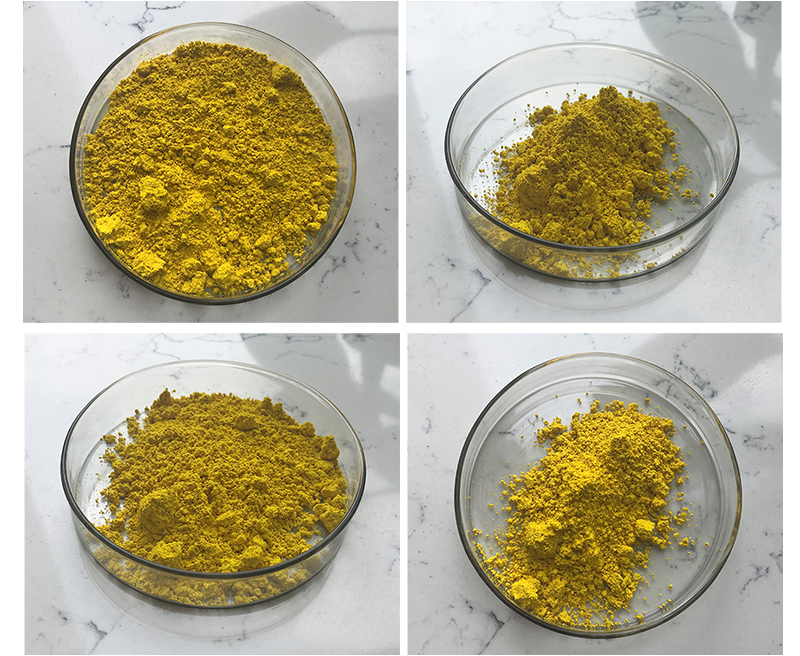As of my last update in September 2021, Berberine Hydrochloride is a compound derived from various plants, including Berberis species, and has been used in traditional medicine for its therapeutic properties. It is commonly available as a dietary supplement and has been studied for its potential health benefits. However, it’s important to note that research in this area is ongoing, and new findings may have emerged since my last update.

Some of the potential therapeutic effects of Berberine Hydrochloride that have been investigated include:
Type 2 diabetes management: Berberine has shown promising effects in helping to lower blood glucose levels in individuals with type 2 diabetes. Studies have suggested that it may improve insulin sensitivity, reduce insulin resistance, and regulate blood sugar levels.
Cardiovascular health: Berberine has been studied for its potential to improve various cardiovascular risk factors. It may help lower cholesterol levels, reduce triglycerides, and support healthy blood pressure levels, which are important factors in maintaining heart health.
Weight management: Some research indicates that berberine may help with weight loss and body composition improvements. It may have an impact on fat metabolism and reduce fat accumulation.
Anti-inflammatory properties: Berberine has shown anti-inflammatory effects in several studies, which may have implications for conditions with underlying inflammation, such as certain digestive disorders.
Antimicrobial activity: Berberine has been recognized for its broad-spectrum antimicrobial properties. It may help combat various bacterial, viral, and fungal infections.
Gastrointestinal health: Berberine has been investigated for its potential in managing conditions like irritable bowel syndrome (IBS) and improving gut health.
Neuroprotective effects: Some studies suggest that berberine may have neuroprotective properties and could play a role in neurodegenerative disease prevention.
It’s essential to keep in mind that while these findings are promising, more extensive clinical trials and research are necessary to establish the safety and effectiveness of Berberine Hydrochloride for specific medical conditions. Additionally, berberine may interact with certain medications or have adverse effects in some individuals, so it’s crucial to consult with a healthcare professional before starting any new supplement regimen. They can provide personalized advice based on individual health conditions and medications.
Evaluation of curative effect of Berberine Hydrochloride
Berberine Hydrochloride is a natural compound found in certain plants, such as the barberry plant, and has been used in traditional medicine for centuries. In recent years, there has been growing interest in its potential health benefits and therapeutic effects.

Some potential health benefits of berberine hydrochloride that have been studied include:
Type 2 Diabetes: Several studies have suggested that berberine may help improve insulin sensitivity and reduce blood glucose levels in people with type 2 diabetes. It is believed to work by activating an enzyme that plays a role in regulating blood sugar levels.
Cardiovascular Health: Berberine has been studied for its potential to lower cholesterol levels and triglycerides, which are risk factors for cardiovascular disease. It may also help improve blood pressure and reduce inflammation in the blood vessels.
Weight Management: Some research indicates that berberine may aid in weight loss and can be beneficial for individuals struggling with obesity by influencing fat-regulating hormones and increasing metabolism.
Gastrointestinal Disorders: Berberine has been used traditionally to treat various gastrointestinal issues, such as diarrhea and irritable bowel syndrome (IBS). Studies have shown it may have antimicrobial and anti-inflammatory effects in the gut.
Liver Health: Berberine has been investigated for its potential to protect the liver and improve liver function in conditions such as non-alcoholic fatty liver disease (NAFLD).
It’s essential to note that while there are promising results from some studies, more high-quality research, including clinical trials, is needed to fully understand the effectiveness and safety of Berberine Hydrochloride for various health conditions.
If you are considering using berberine hydrochloride or any other supplement for medical purposes, it is crucial to consult with a qualified healthcare professional. They can evaluate your specific health condition, medical history, and potential interactions with other medications or treatments you may be taking. Self-treatment with supplements without professional guidance may lead to adverse effects or unintended consequences.
